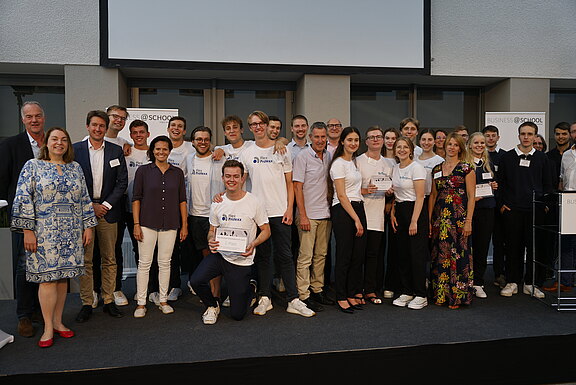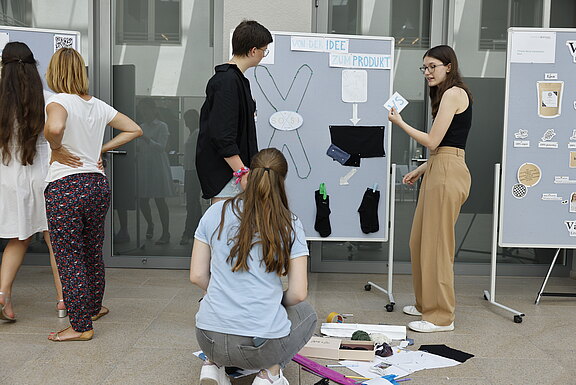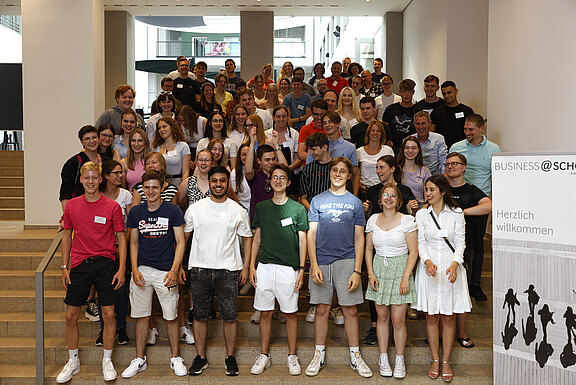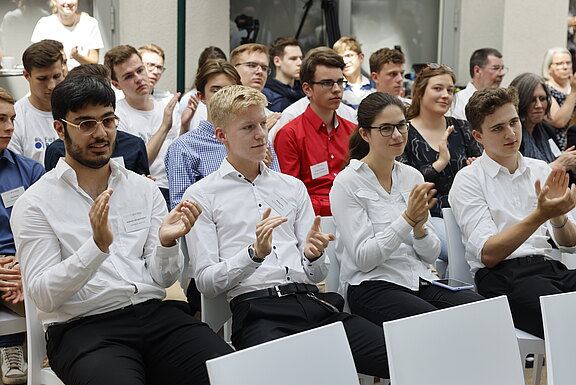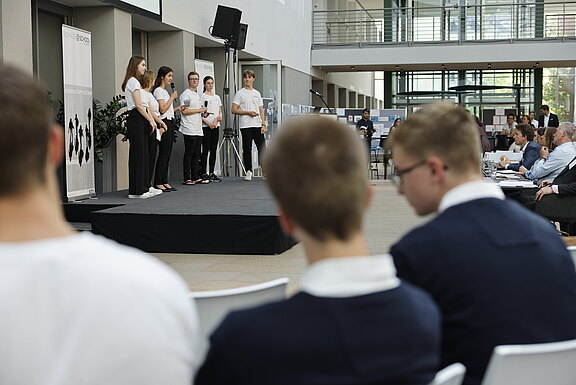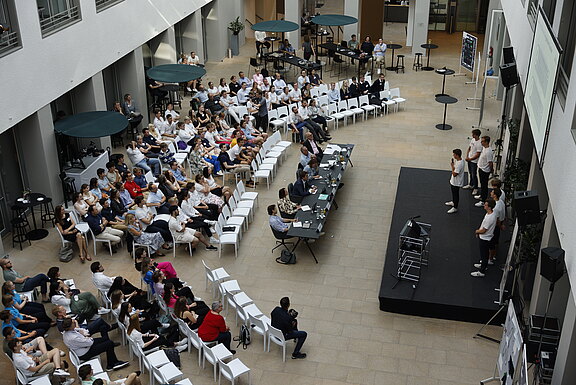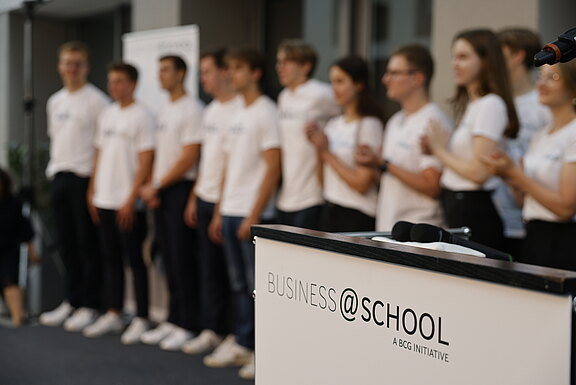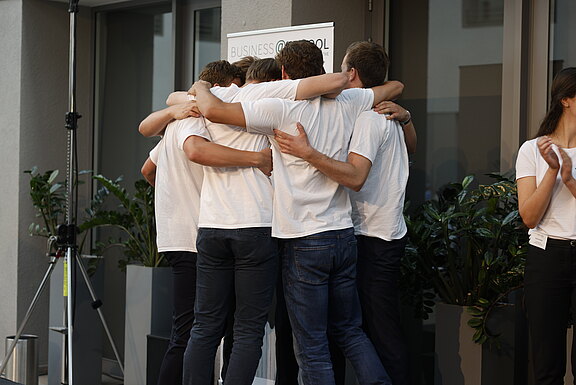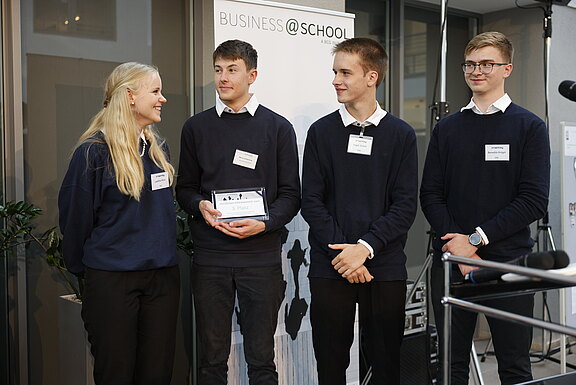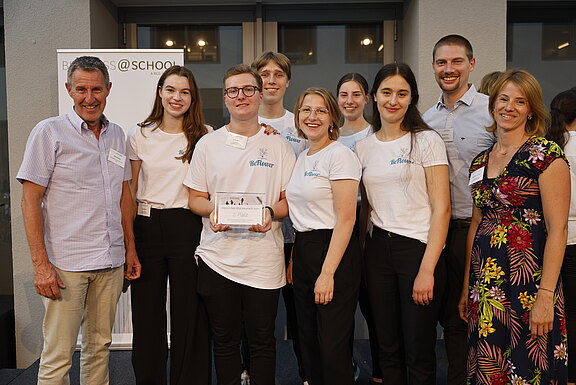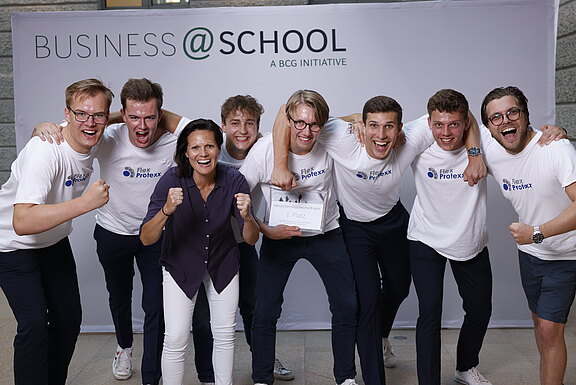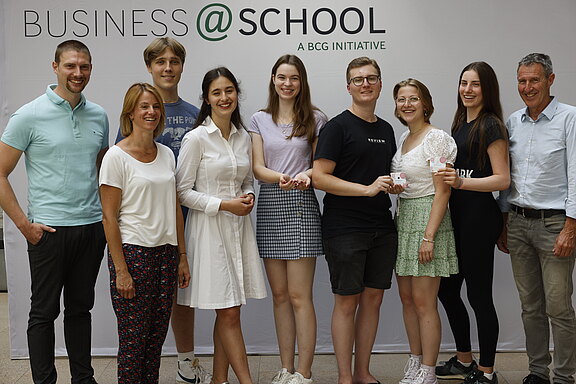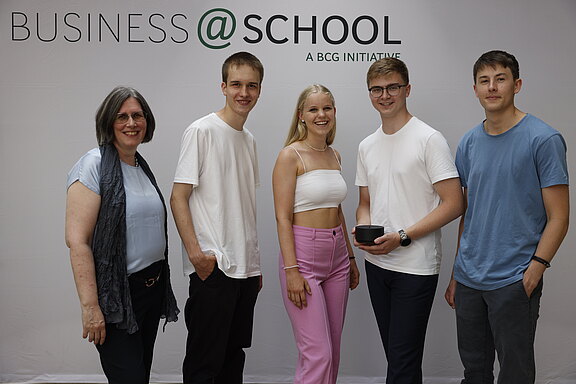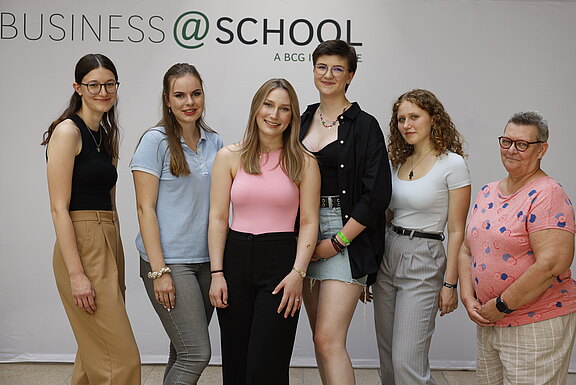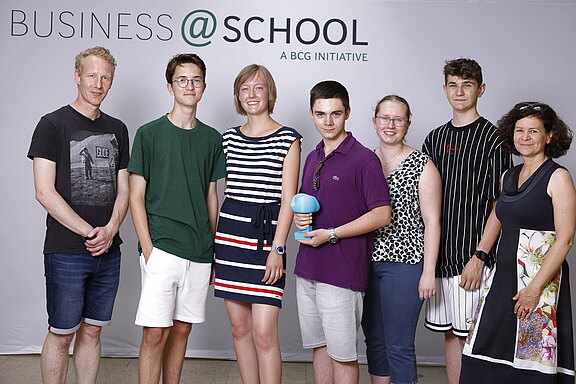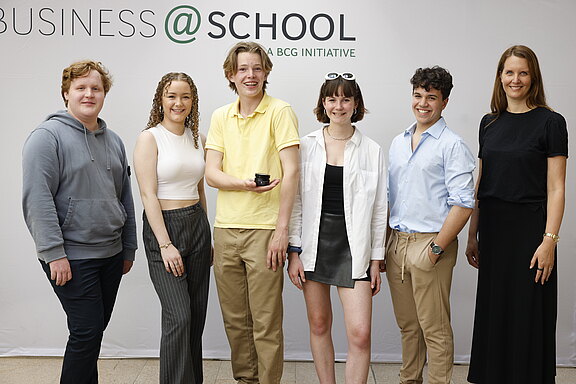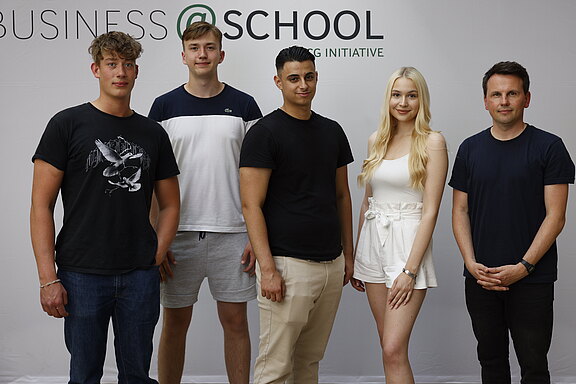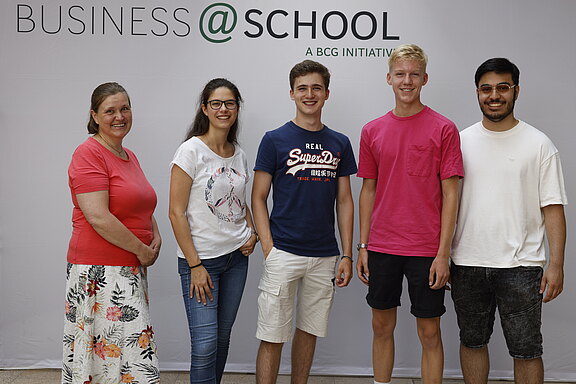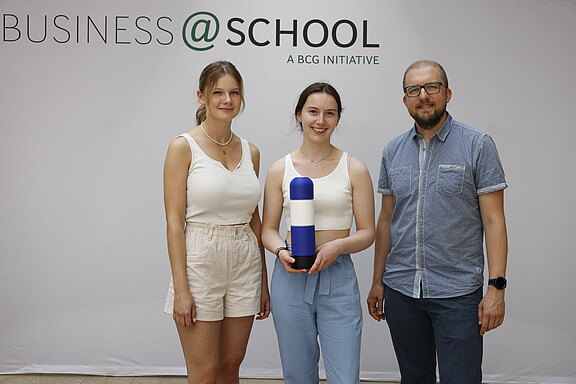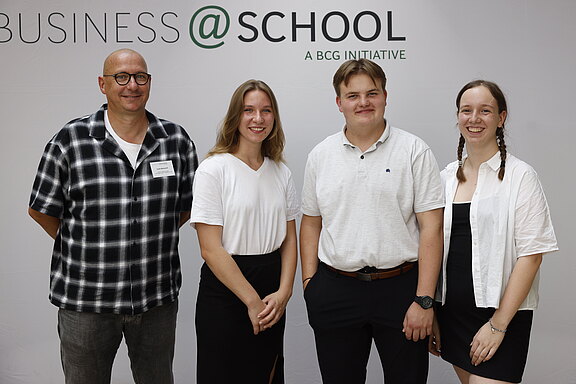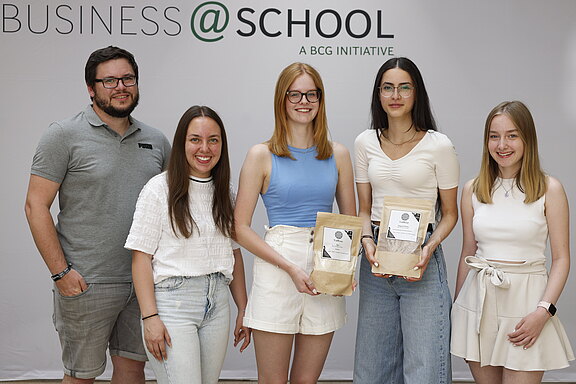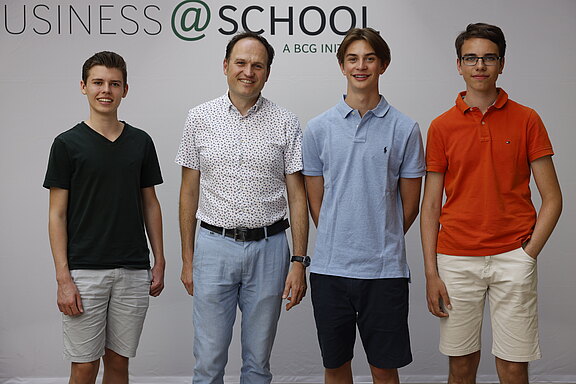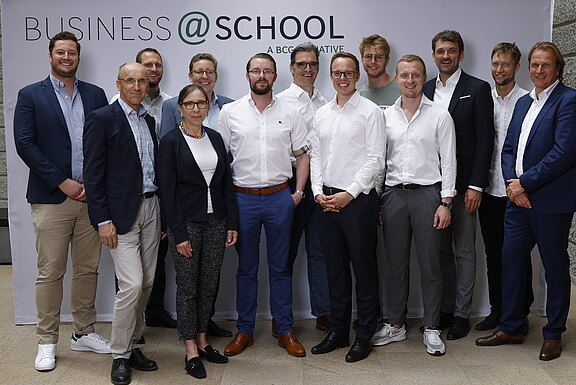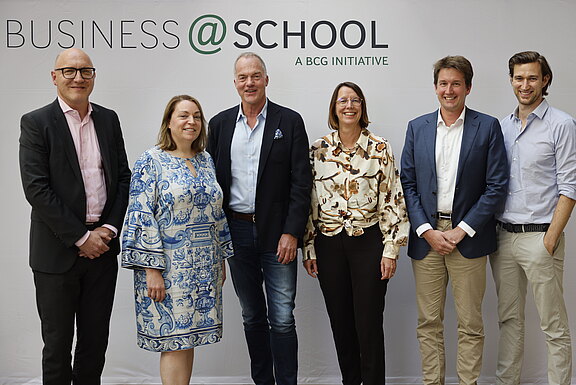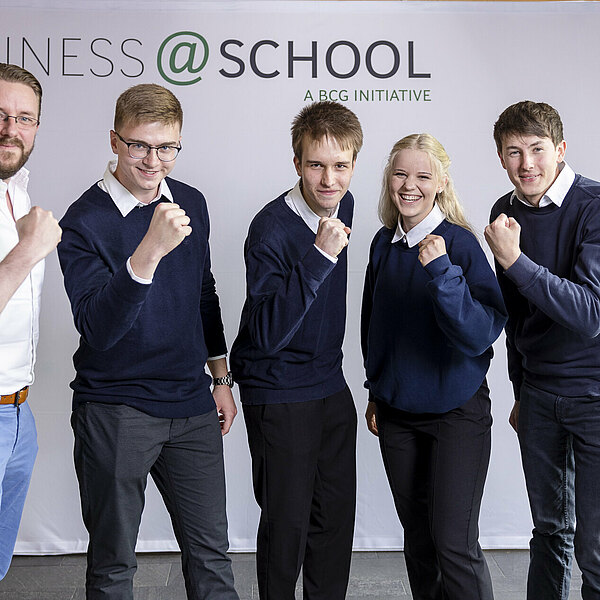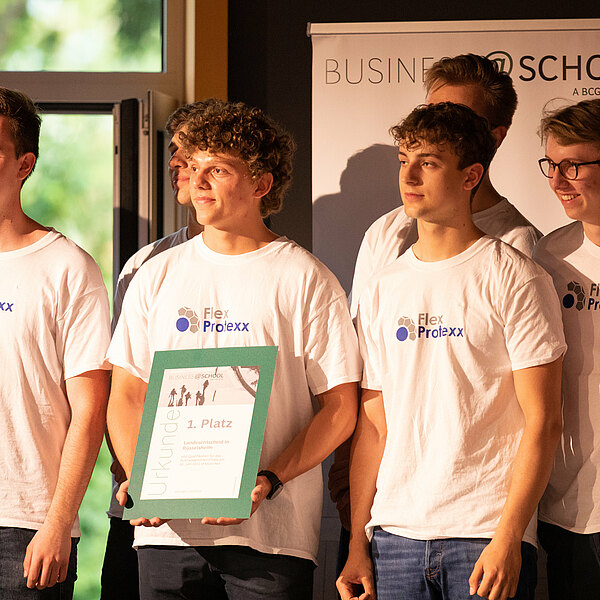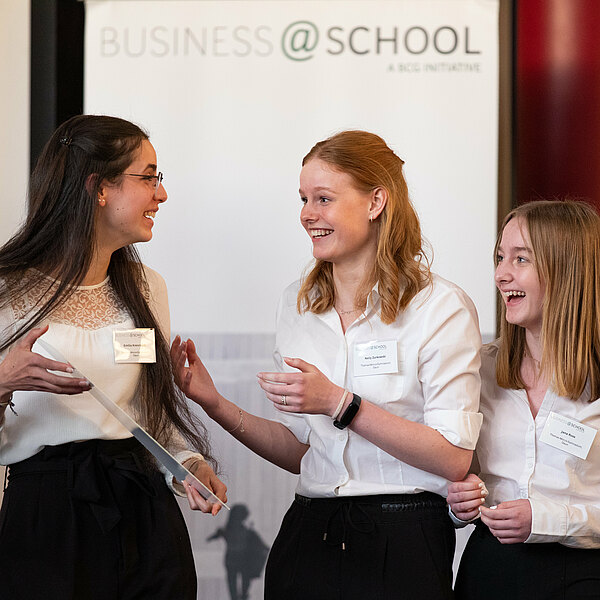Skating risk free: Team from Internatsschule Schloss Hansenberg in Geisenheim wins the Finals for Germany’s best student business idea with innovative knee pads
Munich, June 21, 2022. “Around 1.5 million Germans regularly go skating. But 79 percent don’t wear any protective equipment.” With these figures, Jakob (18), Jan (18), Joel (17), Julius (17), Maxim (18), and Tijan (18) introduced their presentation. They want to change that with their new protector FlexProtexx. Normal protectors often pose a hindrance while skating. But FlexProtexx offers maximum protection without restricting freedom of movement thanks to the nonnewtonian material it contains. The team collaborates with well-known street artists to get the right look.
The technical innovation and the thorough analysis of the market and customer segments persuaded the judges: With this business idea, the students from Internatsschule Schloss Hansenberg in Geisenheim prevailed against the eleven other best teams from all over Germany to win the business@school German Finals. “The other teams were all so strong; we really didn’t think it would be enough,” Joel said visibly pleased. “All the work of the last eight months has paid off.”
Expert judges analyzed the teams’ business ideas
Once again over the three phases of business@school, more than 1,000 senior high school students from roughly 70 schools tried out business for themselves. As the climax of the project year, they tested their entrepreneurial skills by developing innovative business ideas, supported by their teachers and roughly 400 volunteer coaches from over 20 well-known companies and BCG.
Eleven teams qualified for the finals in eleven Regional Competitions throughout Germany. Two additional tickets for participation were awarded with special prizes: The team from Gymnasium Ottobrunn won the Social Entrepreneur Prize donated by SOS Kinderdorf e. V. with their idea of Resctec, and the team from the Erzbischöfliche Liebfrauenschule in Cologne, already winners of the Cologne Regional Competition, won the Sustainability Prize sponsored by Boston Consulting Group with their idea ReFlower. All twelve teams presented their business ideas live at Boston Consulting Group’s office in Munich and then answered probing questions from the judges, who were immensely impressed by the students’ business ideas and well-thought-out business plans.
The judges:
- Jochen Engert, Founder and CEO, FlixMobility GmbH
- Christina Foerster, Member of the Executive Board, IT and Corporate Responsibility, Deutsche Lufthansa AG
- Dr. Rainer Hillebrand, Former Deputy Chairman of the Board of Managing Directors, Otto Group
- Corinna Schittenhelm, Chief Human Resources Officer, Schaeffler AG
- Dr. Konstantin Storms, Partner, Boston Consulting Group
- Jens Uhlendorf, Partner, Hogan Lovells International LLP
ReFlower earns second place for team from Erzbischöfliche Liebfrauenschule in Cologne
Close on the heels of the winning team from Geisenheim, a team of six from the Erzbischöfliche Liebfrauenschule in Cologne nabbed second place. Brian (17), Greta (17), Leif (17), Lotta (17), Sofiya (15), and Vita (17) competed in the search for the best student business idea with ReFlower, biodegradable confetti made from recycled cut flowers. With the self-developed method of making the confetti, the flowers retain their bright colors and are perfectly suitable for weddings and other celebrations. “Your storytelling is absolutely convincing,” the judges agreed.
Third place for Gymnasium Puchheim with Praemisy
Praemisy got four students from the Gymnasium Puchheim to third place. It’s the brainchild of Benedikt (18), Jasper (17), Laetitia (17), and Marco (18): a sensor for gamers that measures the oxygen level in the air and notifies the gamer when reaction speed is affected due to a lack of oxygen. The sensor detects breaks in the game so as not to interfere. In this way, the team wants to increase gaming performance by 20 percent. Among other things, the judges were impressed by the team’s innovative financing method using crowdfunding.
Twelve teams from different schools participated in the German Finals:
- Anton-Philipp-Reclam-Schule, Leipzig: soXsi—aid that prevents socks from getting lost during washing
- Edith-Stein-Schule, Darmstadt: Rollmobis—a walker attachment for people with physical disabilities
- Erzbischöfliche Liebfrauenschule, Cologne:ReFlower—sustainable confetti from wilted flowers
- Gymnasium Eppendorf, Hamburg: Karydi, skin care in a nutshell—biodegradable, recycled walnut shell granules for facial scrubs
- Gymnasium Lohmar: CoJn—creation and issuance of NFTs in collaboration with public figures
- Gymnasium Ottobrunn: Resctec—emergency button for seniors with fall sensor and automatic door opener
- Gymnasium Puchheim: Praemisy—sensor for optimal air quality while gaming
- Internatsschule Schloss Hansenberg, Geisenheim: FlexProtexx—flexible protector made of foam glass granules for skating and motorsports
- Schiller-Gymnasium, Heidenheim: Bottle4You—adjustable thermos bottle with stainless steel strainer insert
- Schloss Torgelow private boarding school, Torgelow am See: Jobwindow—job ads in empty windows and display cabinets in schools
- Thomas-Morus-Gymnasium, Daun: Vafflour—novel ready-made dough mixes that are sugar free, lactose free, and vegan
- Wilhelmsgymnasium, Munich: Trade Star—app for playfully learning about stock market trading
